02:47
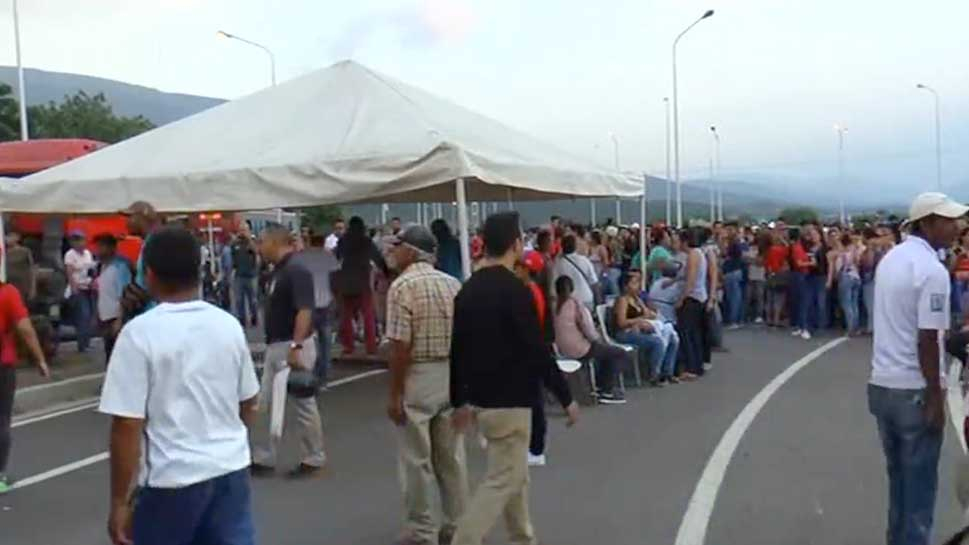
It's one of the worst-ever migration crises in Latin America.
The U.S. has criticized Maduro for not accepting its humanitarian aid, accusing him of indifference towards his own people. But does the U.S. really care about Venezuelans, or is it just another ploy to undermine Maduro?
According to the International Red Cross, more than one million Venezuelans have moved to Colombia since 2017.
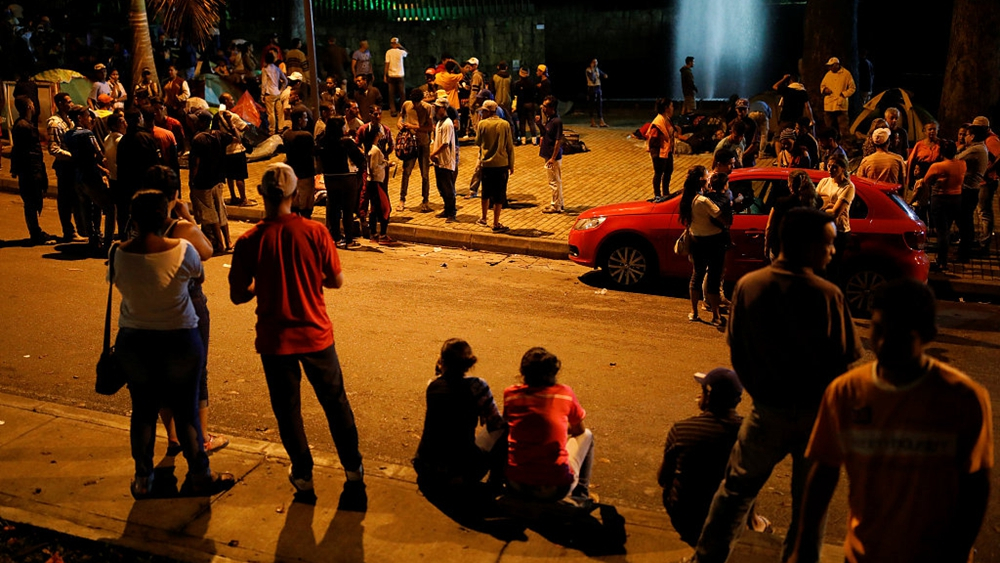
People gather at a public square that has become an informal camp for several hundred undocumented Venezuelan migrants in Bucaramanga, August 27, 2018. /VCG Photo
People gather at a public square that has become an informal camp for several hundred undocumented Venezuelan migrants in Bucaramanga, August 27, 2018. /VCG Photo
The UN estimates that countries in Latin America and the Caribbean are hosting around 2.4 million refugees and migrants from Venezuela. The country is battling hyperinflation, high unemployment and severe shortages of food and medicines.
There's no denying Venezuelans need urgent help and international support. But is American aid the answer?
As the United States attempts to play the good Samaritan and blame Maduro for being insensitive, facts tell a different story.
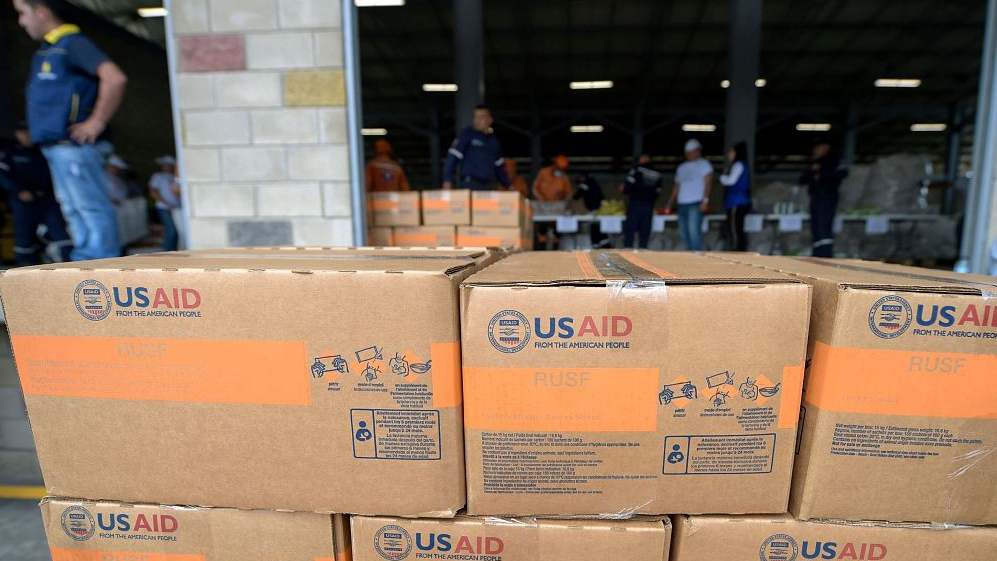
A view of boxes with U.S. humanitarian aid goods in Cucuta on the border with Tachira, February 8, 2019. /VCG Photo
A view of boxes with U.S. humanitarian aid goods in Cucuta on the border with Tachira, February 8, 2019. /VCG Photo
Many experts believe Washington should be partially blamed for the economic mess in Venezuela.
For more than a decade, the United States has slapped sanctions as a policy tool against the Latin American country. Analysts say the latest American measures against Venezuela's state-owned oil company have accelerated the already catastrophic decline of the oil-rich nation's economy.
Venezuelan President Nicolas Maduro says the reported 20 million U.S. dollars worth of aid pales in comparison with the estimated loss of 30 million dollars per day in oil revenues due to the U.S. sanctions.
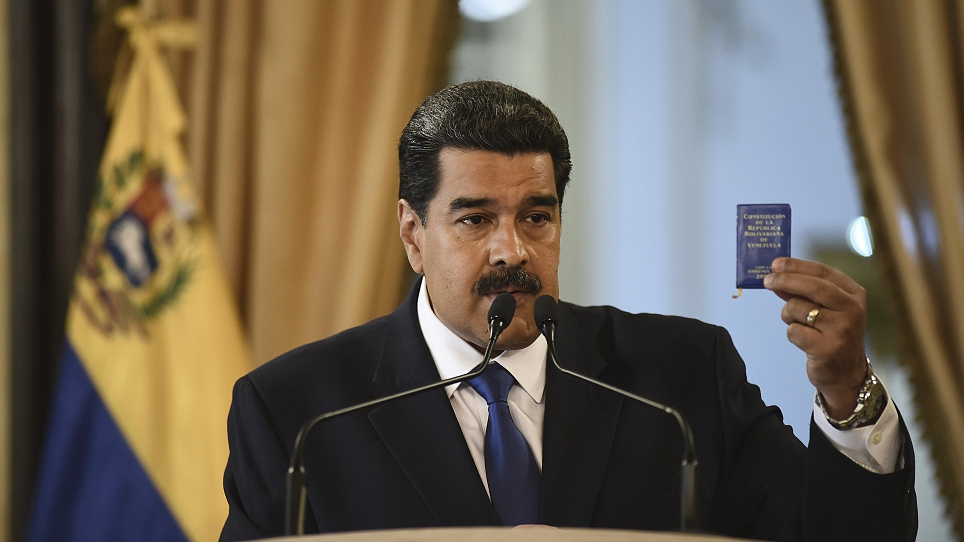
Nicolas Maduro, Venezuela's president, holds the country's constitution while speaking during a televised press conference in Caracas, February 8, 2019. /VCG Photo
Nicolas Maduro, Venezuela's president, holds the country's constitution while speaking during a televised press conference in Caracas, February 8, 2019. /VCG Photo
And it's not just Maduro who is skeptical of the assistance. Both the United Nations and the Red Cross have declined to participate in Washington's aid plan. The UN has warned against using assistance as a political pawn in Venezuela.
Venezuela's Opposition leader is also accused of using the aid offer as a political weapon. On Monday, Juan Guaido tweeted several pictures of himself with the U.S. aid material. The Trump administration's "humanity" argument seems to have few loopholes. Some experts blame the U.S. for conveniently ignoring the humanitarian crises elsewhere in the world.
In Yemen, the U.S. is part of the Saudi-led coalition, which is accused of creating one of the worst humanitarian crises in the Middle East. Last August, the Trump administration announced it wouldn't spend 230 million U.S. dollars reserved by Congress to help stabilize areas in Syria.
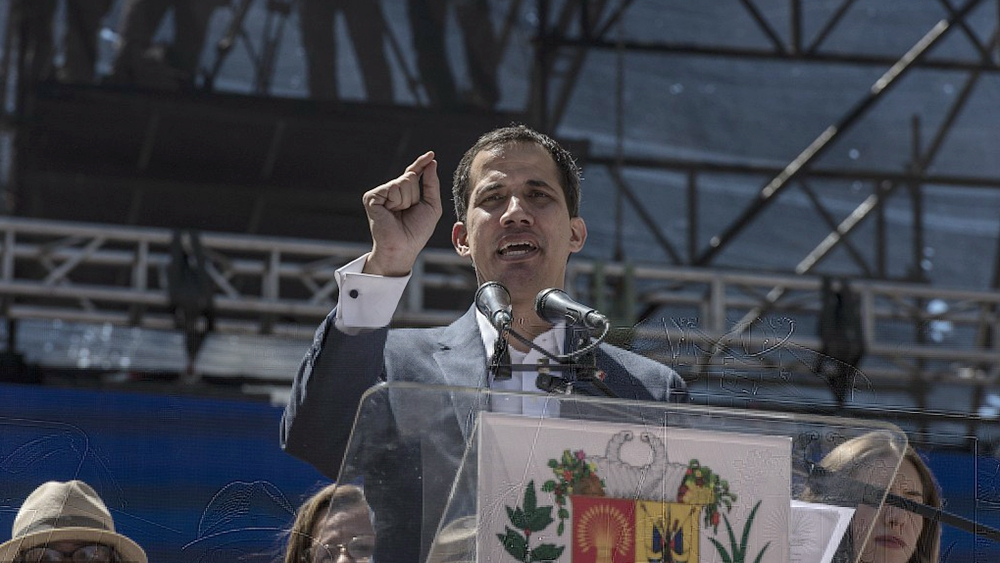
Venezuelan National Assembly's President Juan Guaido makes a speech as opponents gather to stage a protest after his call demanding soldiers to allow the humanitarian aids into the country in Caracas, February 12, 2019. /VCG Photo
Venezuelan National Assembly's President Juan Guaido makes a speech as opponents gather to stage a protest after his call demanding soldiers to allow the humanitarian aids into the country in Caracas, February 12, 2019. /VCG Photo
It also decided against spending over 200 million U.S. dollars set aside for Palestinian aid in the West Bank and Gaza. Over five million Palestinian refugees live in the West Bank and Gaza Strip, as well as in Jordan, Lebanon and Syria.
So the question remains: Is politics the single-biggest factor behind the American aid offer?






